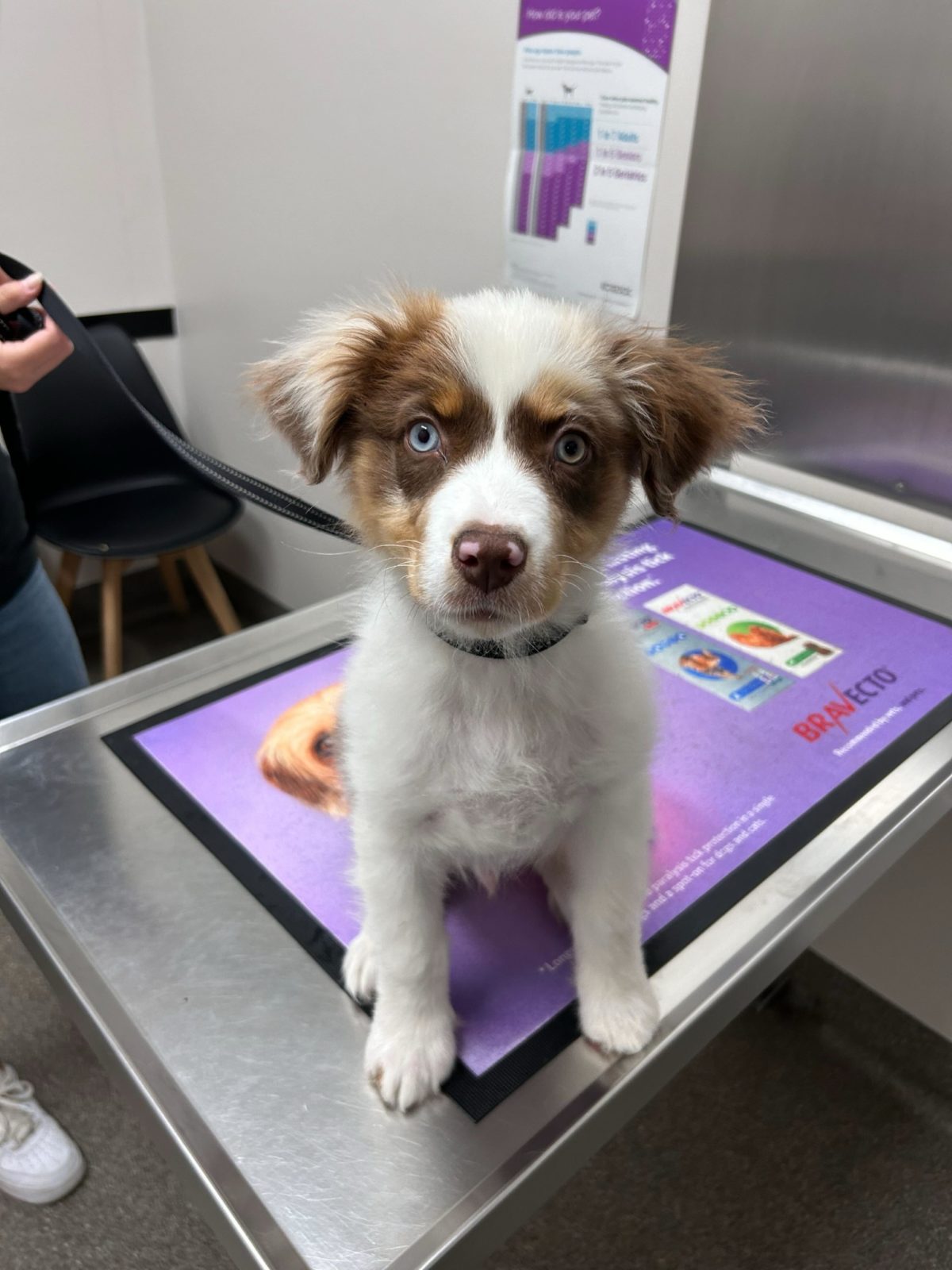The Importance of Pet Vaccinations

Pet Vaccinations: Protecting Your Pet from Serious Diseases
As pet owners, we all want to ensure our furry companions live long, happy, and healthy lives. One of the most effective ways to protect them is by keeping up with their vaccinations. Vaccines are crucial in preventing some of the most dangerous and fatal diseases that can affect our pets. In this blog, we’ll explore the benefits of vaccinating your dog against diseases like Parvo, Distemper, Hepatitis, Kennel Cough, and Leptospirosis—common and potentially fatal illnesses that can be prevented with the right vaccine and like Feline Panleukopenia , Feline Calicivirus and Feline Herpesvirus. Understanding the risks and benefits of vaccination can help you make informed decisions for the health of your pets.
Why Vaccinate Your Dog?
By vaccinating your dog, you help strengthen their immune system and prepare it to fight off infections. Just as humans rely on vaccines to protect themselves against the flu or measles, pets depend on vaccinations to avoid dangerous diseases.
- The Dangers of Parvovirus (Parvo)
Parvovirus is one of the most serious and highly contagious diseases that affect dogs, particularly puppies. Parvo attacks the gastrointestinal system and can cause severe vomiting, diarrhea (often bloody), dehydration, and fever. If left untreated, Parvo can lead to death within a matter of days. The virus spreads through contact with infected feces or contaminated surfaces. In Australia, Parvo remains a significant threat, especially in areas with high dog populations, and vaccination is essential to avoid a potentially fatal outcome.
The Parvo vaccine is part of the core vaccine series given to puppies and should be kept up-to-date throughout adulthood. Without vaccination, the virus can spread rapidly, and the consequences can be devastating.
- Distemper: A Serious, Often Fatal Virus
Distemper is another highly contagious and potentially fatal virus affecting dogs, especially unvaccinated puppies. This virus can cause a range of symptoms, from respiratory issues (coughing and nasal discharge) to neurological symptoms (seizures, tremors, and paralysis). Distemper often has a high mortality rate, and even if a dog survives, it can suffer long-term neurological damage.
Fortunately, the distemper vaccine is included in the core vaccine protocol for puppies and dogs, offering significant protection against this deadly virus. In Australia, where outbreaks can occur, keeping your dog vaccinated is the best defense against this severe disease.
- Canine Hepatitis: Protecting Your Dog’s Liver
Canine Hepatitis (caused by the canine adenovirus) is a viral infection that primarily affects the liver, kidneys, and eyes. It can lead to symptoms like fever, abdominal pain, vomiting, diarrhea, and in severe cases, organ failure. Canine Hepatitis can be fatal, particularly in young or immunocompromised dogs.
The vaccination for canine hepatitis is included in the core vaccine series and is effective in preventing the virus. Dogs that aren’t vaccinated are at risk of contracting this serious illness, so maintaining an up-to-date vaccination schedule is critical.
- Kennel Cough: The “Dog Flu”
Kennel Cough, also known as canine infectious respiratory disease (CIRD), is a contagious respiratory illness that is similar to the flu in humans. It’s caused by a combination of viruses and bacteria, including Bordetella bronchiseptica and the canine parainfluenza virus. Symptoms typically include a persistent cough, nasal discharge, and a slight fever.
While kennel cough is generally not life-threatening in healthy dogs, it can be highly contagious, spreading quickly in places like kennels, dog parks, and grooming facilities. That’s why the kennel cough vaccine is often required for dogs attending daycare or boarding facilities.
The kennel cough vaccine is typically administered annually—just like the flu shot in humans. It helps to prevent the spread of this respiratory illness and ensures that your dog remains protected from the discomfort and potential complications that can arise from an infection.
- Leptospirosis: A Dangerous Zoonotic Disease
Leptospirosis is a bacterial infection that can affect both humans and animals. In dogs, it can lead to kidney damage, liver failure, and, in some cases, death. The disease is caused by the bacteria Leptospira, which can be found in the urine of infected wildlife, particularly rats. Dogs can become infected by coming into contact with contaminated water, soil, or even by drinking from puddles or ponds that have been contaminated.
In Australia, leptospirosis is a growing concern, especially in areas with high rainfall and dense wildlife populations. The leptospirosis vaccine is not part of the core vaccine series, but it is recommended for dogs that are at a higher risk, such as those who live in rural or flood-prone areas, or those that frequently swim or drink from outdoor water sources.
Dog Vaccines Schedule
The vaccination schedule begins when puppies are around 6 to 8 weeks old, with a series of initial vaccinations followed by booster shots to ensure proper immunity. After the initial series, Some vaccines, like Kennel Cough and Leptospirosis, require annual boosters as an adult dogs, For other core vaccines, such as those for Parvovirus, Distemper, and Hepatitis, booster shots are typically needed either annually or every three years, the other viruses (depending on the specific vaccine used and your veterinarian’s recommendation) to maintain protection against these dangerous diseases.
Cat Vaccinations: Essential for Feline Health
Just like dogs, cats also require vaccines to protect them from serious diseases. The core vaccines for cats are vital in preventing potentially fatal diseases that can spread easily among felines.
F3 Vaccine: The Basic Feline Protection
The F3 vaccine is a core vaccine for cats , covering protection against three serious diseases:
- Feline Calicivirus (FCV): This virus causes respiratory issues in cats, including sneezing, nasal discharge, and mouth ulcers. Severe cases can lead to pneumonia and can be fatal, especially in kittens or immunocompromised cats.
- Feline Herpesvirus (FHV-1): This is another common cause of upper respiratory infections in cats. Symptoms include sneezing, coughing, and conjunctivitis (eye inflammation). FHV-1 can cause chronic respiratory issues, and kittens are particularly vulnerable to severe forms of the disease.
- Feline Panleukopenia (FPV): Also known as feline distemper, FPV is a highly contagious and often fatal disease that affects a cat’s immune system, leading to fever, vomiting, diarrhea, and dehydration.
Vaccinating your cat with the F3 vaccine is essential to protect them from these severe illnesses.
F3 Vaccine Schedule for Cats
The F3 vaccination schedule typically begins when kittens are around 6- 8 weeks old, with a series of initial vaccinations followed by booster shots to maintain immunity. After the initial series, adult cats will need a booster shot either annually or every three years (depending on the specific vaccine used and your veterinarian’s advice) to keep their protection against these diseases strong.
What Happens if You Skip Vaccines?
Failing to vaccinate your dog—or cat—puts them at serious risk of contracting severe, often fatal diseases. In dogs, diseases like Parvo, Distemper, and Hepatitis can be deadly, and the treatment for these conditions can be extremely expensive, often requiring long hospital stays and intensive care. Vaccination is a much more cost-effective solution, providing critical protection against these potentially catastrophic diseases.
For cats, skipping vaccines like the F3 vaccine—which protects against Feline Calicivirus, Herpesvirus, and Panleukopenia—puts them at risk of suffering from severe respiratory illnesses or fatal conditions like feline Panleukopenia. Just as with dogs, the costs of treating these diseases can be significant, and the impact on your cat’s health can be long-lasting.
In addition, for dogs skipping the Kennel Cough vaccine (for dogs) or failing to keep up with annual boosters can expose them to respiratory infections that are easily spread in places where pets interact, like parks, grooming salons, and boarding facilities. The good news is that all of these diseases are preventable through vaccination, offering your pet a much safer and healthier life.
Conclusion: Protect Your Pets with Vaccination
Vaccinations are one of the simplest, most effective ways to protect your pets from serious, sometimes fatal diseases. By keeping up with the recommended vaccination schedules for Parvo, Distemper, Hepatitis, Kennel Cough, and Leptospirosis (for dogs), and the F3 vaccination (for cats), you help ensure your pets lead long, healthy lives.
where many of these diseases are still prevalent, and where environmental factors increase the risk of certain infections,
vaccination is not just recommended—it’s essential. Regular veterinary check-ups, combined with a solid vaccination plan, will give your pet the best chance of living a healthy, happy life.
So, talk to your veterinarian today about setting up a vaccination plan that works for your pet. It’s a small step that makes a world of difference in keeping your beloved companion protected from serious illnesses.
Book an Appointment Today
Whether you’re looking for advice, reassurance, or a little extra guidance, the Clyde Veterinary Team is here to support you and your furry family members every step of the way. Reach out to us for expert care tailored to keep your pets happy, healthy, and thriving.
About the Author:
Dr. Irene Mitry is the owner and founder of Clyde Veterinary Hospital, and a vet with a difference. She has not one, but two veterinary degrees, and an abiding passion for preventative pet care. Her life-long love for our animal friends shines through in everything she does, as her client testimonials show. Dr Mitry’s long-standing desire to bring this philosophy of care to life in her own purpose-built veterinary clinic led her to found Clyde Veterinary Hospital in 2018.


